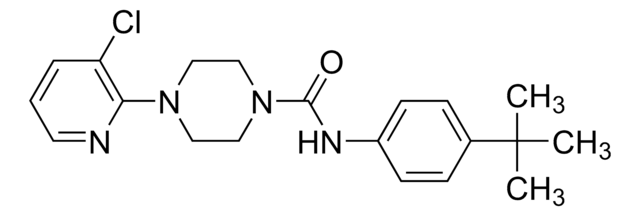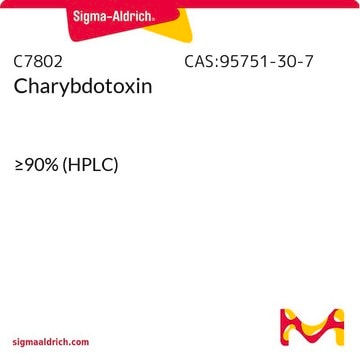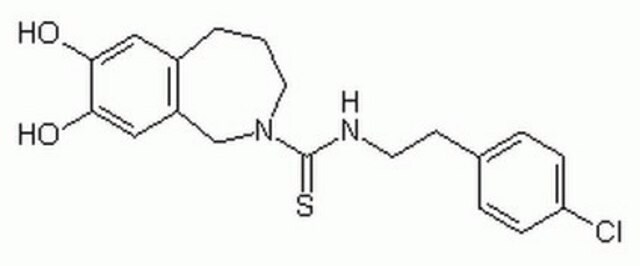S0441
SB-366791
≥98% (HPLC), powder
Synonym(s):
N-(3-Methoxyphenyl)-4-chlorocinnamide
About This Item
Recommended Products
Assay
≥98% (HPLC)
form
powder
color
white to beige
solubility
DMSO: 5 mg/mL, clear
originator
GlaxoSmithKline
SMILES string
COc1cccc(NC(=O)\C=C\c2ccc(Cl)cc2)c1
InChI
1S/C16H14ClNO2/c1-20-15-4-2-3-14(11-15)18-16(19)10-7-12-5-8-13(17)9-6-12/h2-11H,1H3,(H,18,19)/b10-7+
InChI key
RYAMDQKWNKKFHD-JXMROGBWSA-N
Gene Information
human ... TRPV1(7442)
Application
- to infer the in vitro and in vivo pharmacology of (E)-3-(4-t-butylphenyl)-N-(2,3-dihydrobenzo[b][1,4]dioxin-6-yl)acrylamide (AMG 9810)
- to study its effects on sodium hydrogen sulfide (NaHS) or capsaicin-induced contractile activity
- to study the inhibitory potency of phoneutria toxin (PnTx3-5) (native and recombinant) on various responses mediated by transient receptor potential cation channel subfamily V member 1 (TRPV1)
Biochem/physiol Actions
Features and Benefits
Storage Class Code
11 - Combustible Solids
WGK
WGK 3
Flash Point(F)
Not applicable
Flash Point(C)
Not applicable
Personal Protective Equipment
Certificates of Analysis (COA)
Search for Certificates of Analysis (COA) by entering the products Lot/Batch Number. Lot and Batch Numbers can be found on a product’s label following the words ‘Lot’ or ‘Batch’.
Already Own This Product?
Find documentation for the products that you have recently purchased in the Document Library.
Our team of scientists has experience in all areas of research including Life Science, Material Science, Chemical Synthesis, Chromatography, Analytical and many others.
Contact Technical Service








